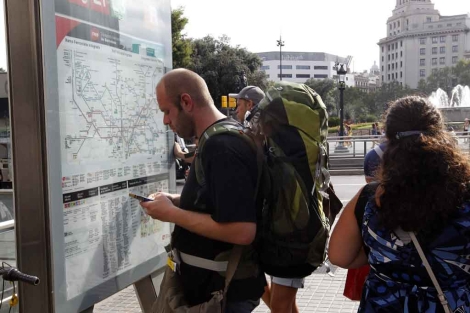
Barcelona has become one of the largest resorts worldwide. Despite the discomfort in those areas of the city saturated with tourists in search of new experiences, it is clear that its impact on the city goes far beyond its negative effects. In addition, an obvious failure, such as the high level of unemployment, should make tourism, a labour-intensive industry, one of the sectors of the local economy that should be pampered.
It is also true that the tourism chain employs relatively lower-paid workers than other sectors. However, if these other sectors are unable to create new jobs, we should not neglect the opportunity offered by global travellers. Furthermore, the total economic impact of visitors not only benefits hotels, restaurants or museums. It also has a direct impact on their suppliers, which could be used to prioritize the purchase of food and beverages for local producers. Moreover, there are also other effects induced by the tourism industry, such as spending by the staff of hotels and restaurants, and the supply chain impact.
Clearly, to the negative impacts in the form of noise disturbance and crowds, we should add the environmental costs of waste disposal, water use and pollution from transport and electricity production.
Infrastructure and technology make Barcelona a global destination
Both the port of Barcelona and the airport of El Prat occupy leading positions in the Mediterranean thanks to the positioning of Barcelona as an attractive destination.
The Port and Airport have significantly increased their importance in the Catalan economy. Of course, environmental costs have increased due to noise, atmospheric emissions of greenhouse gases (and their impact on health).
However, so have the social impacts associated with increased activity in both these infrastructures, and in the case of the airport, it has become one of the largest providers of professional experience for the citizens of the metropolitan Barcelona.
In spite of this, the excessive weight of the low-cost flights results in a tourism that is very sensitive to price fluctuations. In addition, the destinations dependent on low-cost flights will be particularly vulnerable to a likely increase in fuel costs.
Social networks, meanwhile, allow travellers to plan their holiday by accessing up-to-the minute information, including comments from other travellers. These same social networks give smaller companies a platform for low-cost marketing that brings them to potential clients from anywhere in the world.







